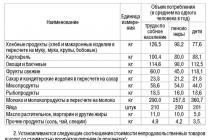Today, the Central Bank has introduced a moratorium on meeting the requirements of creditors in the bank "BFG-credit" Yuri Glotser. This follows from the official statement of the regulator.
“In connection with the failure to satisfy the claims of creditors for monetary obligations within a period exceeding seven days from the date of their satisfaction, from April 27, 2016, the Bank of Russia introduced a moratorium on satisfying the claims of creditors of the BFG-credit bank for a period of three months (guided by the law on bankruptcy)," the regulator said.
According to the deposit insurance law, the introduction of a moratorium on satisfying the claims of bank creditors is an insured event. Payments to bank depositors, including individual entrepreneurs, will begin no later than 14 days from the date of the moratorium. The procedure for payment of insurance compensation will be determined by the Deposit Insurance Agency (DIA). As of April 1, 2016, 23.1 billion rubles of deposits and funds were placed in the BFG-credit bank on the accounts of individual entrepreneurs, follows from the bank's reporting on the Central Bank website.
According to the head of the analytical department of the BKF Bank Maxim Osadchy, the bank's customers will receive up to 17 billion rubles of state insurance.
BFG-credit ranks 16th in terms of the volume of placed state funds, Maksim Osadchiy notes. - The Bank indicates that among its clients are Channel One, All-Russian State Television and Radio Broadcasting Company, Mir TV Company.
BFG-Credit was one of two banks specializing in film credit. The bank's loss for two months of 2016 amounted to 1.15 billion rubles. The bank placed 9.13 billion rubles of funds from federally owned commercial organizations. On April 12, the Central Bank introduced temporary administration to the bank for a period of six months.
As follows from the data kartoteka.ru, Yuri Glotser owns 100% of the BFG group of companies, which includes both the BFG-credit bank and BFG-Kino LLC (BFG-Media-production brand). In the bank, Yuri Glotser owns 39.7%, the Cypriot companies Festoria Consultants Limited and Kosa Holdings Limited own 15.5% and 10%, respectively. Another 19.5% of the bank is owned by Tamara Khoroshilova. The son of Yuri Glotser, Philip, owns another 5.3% of BFG-credit, follows from the information on the bank's website.
Yuri Glotser is the head of BFG-Media-Production. Owns 67% of the company.
Bank "BFG-credit" is in the top 100 in terms of assets. A few years ago BFG was the payroll bank of FSUE RAMI "RIA Novosti". According to sources in the banking market, “the fact that state corporations cooperate with banks with less than a hundred rating is far from an exception. Usually state-owned companies have a couple of large banks and 1-2 small banks for cooperation. Large banks are not very interested in small issues, and for faster and better work, small banks are also chosen.”
Deputy Chairman of the State Duma Andrei Isaev asked the leadership of the Central Bank to take a closer look at the activities of the BFG-Credit bank, and most importantly, to figure out how it happened that the bank, almost half owned by foreigners, ended up with funds from Russian state-owned companies and where they were eventually transferred.
Who needs sanitation of "black holes"?
Perhaps it is too early to discuss what fate awaits the owners of the bank "BFG-Credit". It is unlikely that they, as the president and co-owner of Vneshprombank Larisa Markus, will be under arrest. Rather, how her brother and another co-owner of Vneshprombank Georgy Bedzhamov will rest somewhere abroad. Moreover, Yevgeny Maftsir, who heads the Board of Directors of BFG-Credit Bank, is a US citizen, and they say he has not appeared in Russia for a long time. Yes, and the main owner of the bank, Yuri Glotser, still has the opportunity to leave, say, for treatment, for example, somewhere in Israel.
It will be much worse for the heads of state-owned companies that have given the accounts of their organizations to the management of Glotser and the company if suspicions are confirmed of the existence of schemes for withdrawing funds to offshore, or covert financing through the bank of Glotser's film production business at the expense of the budget of state-owned companies.
Such suspicions look quite convincing when the head of the Central Bank Elvira Nabiullina is asked to check the situation with the bank by the Deputy Chairman of the State Duma. And you don’t need to be a professional financier to understand that if, with a bank’s assets of 58-60 billion rubles, the “hole” in its budget is estimated at almost the same amount, then this is hardly just a consequence of the crisis and business mistakes guides. The only question is why the heads of state-owned companies are so concerned about the possible reorganization of BFG-Credit.
As you know, the reorganization assumes that at the expense of the Deposit Insurance Agency (DIA) or another financial institution, and in fact, at the expense of ordinary depositors and ordinary Russian taxpayers, BFG-Credit must pay off all its debts, since the funds in the accounts not even enough to fulfill current obligations in the amount of ... 5 billion rubles.
fatal figure
Interestingly, when a couple of years ago, the Central Bank only suspected some financial risks for government agencies in the Yugra bank, it almost in a directive order ordered the withdrawal of all accounts affiliated with government agencies from this financial institution. However, this did not collapse Ugra and did not even cause much panic among customers. While the bank "BFG-Credit" collapsed almost overnight, and the Central Bank either did not want, or did not have time to warn anyone about it.
Back at the beginning of the year, BFG-Credit was among the top hundred banks in terms of own assets. And suddenly in February there was a sudden check of the regulator. In mid-April, a temporary administration was introduced in the bank, and a couple of weeks later a moratorium on the fulfillment of obligations to creditors was introduced, which made experts immediately start talking about the bankruptcy of this organization.
It is noteworthy that the reason for the introduction of temporary administration in BFG-Credit was the requirement of the Central Bank to accrue additional reserves for 6 billion rubles, which became an unbearable burden for the bank.
By a strange coincidence, 6 billion is the amount of credit operations carried out by BFG-Credit as part of lending to film production, which Yury Glotser spoke about in one of his interviews. And this figure also coincides with the amount of funds “hanging” in the bank on the accounts of state television companies - Channel One, VGTRK and Russia Today (RussiaToday).
Maybe the requirement of the Central Bank for additional reserves of 6 billion rubles - was this an attempt by the regulator to insure the deposits of state-owned media companies? But she was clearly too late. If at first there were excuses that the bank's shareholders simply did not have time to promptly collect the required amount, then soon after the start of work at BFG-Credit, it became obvious to the interim administration that there was nothing left to save.
Here, of course, questions arise for the Central Bank employees, which Andrey Isaev also addressed to the regulator. Why, for example, “the Central Bank of the Russian Federation did not recommend state-owned companies to withdraw their accounts from BFG-Credit in advance, knowing about the risky financial policy of the bank? How did it happen in a much calmer situation with the same bank Yugra mentioned above?
It is also strange that the bank, more than 30 percent owned by foreign citizens and offshore companies, kept the funds of enterprises of the military-industrial complex.
Meanwhile, as it became known, it is the leaders of the media holdings who are offering the Central Bank to go for an expensive reorganization of the bank.
At first, BFG-Credit's troubles were associated with the fact that it was lending to development projects, which, according to some observers, raised questions from the Central Bank. But the developers themselves hastened to disown the bank's troubles. Indeed, the collapse of the bank did not cause any noticeable wave of bankruptcies among builders or pickets of deceived equity holders. Actually, there are no crowds of deceived depositors around BFG-Credit, in contrast to, say, Vneshprombank, where VIP clients lost their fortunes.
Another thing is media holdings closely connected with Yuri Glotser's film business. As the co-owner of BFG-Credit himself said, the bank provided loans to about 50 clients from the film industry, not forgetting, of course, about BFG-Media-Production, Glotser's own company, which produced films for Channel One, the Rossiya TV channel , NTV and others.
“When a company comes to us for a loan, it usually takes no more than a month from the moment the application is submitted to the actual disbursement of money. And if she already has an agreement with the channel - about two weeks. In addition to the scenario, the client submits fiscal information about himself: constituent documents, balance sheet figures for the previous year, and certificates of timely payment of taxes. Thus, our economists and lawyers assess the company itself, its financial and legal viability, and the creative and commercial potential of the project is assessed by the BFG-Media-Production company, which is our consultant,” the banker-producer described the principles of his business.
It is not difficult to assume that when BFG-Media-Production needed a loan from a bank, it was unlikely to give him negative expert opinions on their projects. Moreover, she obviously always had contracts with TV channels. And, as a rule, judging by the projects implemented by the company, for the most part these were agreements with the All-Russian State Television and Radio Broadcasting Company. Even the well-known presenter of the Man and the Law program on Channel One Alexei Pimanov, judging by the company's website, realized his production film projects at BFG-Media-Production specifically for the Rossiya TV channel. Only now in different stages of readiness in the company there are 6 projects of serials. All of them have already been scheduled for customers: two series should go to Channel One and four to the All-Russian State Television and Radio Broadcasting Company - to the Rossiya-1 TV channel. Moreover, if the projects of Channel One are still at the stage of developing scenarios, i.e. the costs for them are not significant yet, then the 16-episode television film "Guardian of the Law" and the 12-episode television film "Fulcrum" for the All-Russian State Television and Radio Broadcasting Company are already being filmed with might and main!
The collapse of the bank in this situation can lead to the collapse of television projects, so the leadership of Rossiya-1 will probably have to look for money to complete the projects or find a replacement for them. And then it will be additional expenses and losses of the TV channel during the crisis.
In general, the symbiosis of VGTRK, BFG-Credit and BFG-Media-Production allows specialists to suggest a simple scheme of business relations between Yuri Glotser and the management of media companies. The channel placed funds in the bank and promised, or maybe concluded agreements with BFG-Media-Production to demonstrate the film production of this structure. As a result, it could turn out that Yuri Glotser issued loans to BFG-Media-Production, that is, to himself, at 13 percent, using the money in the accounts of VGTRK. When the channel paid, the funds returned to BFK-Credit, including a considerable profit.
According to experts, in such a scheme, not only the planned profit is usually stipulated in advance. Therefore, at the request of Deputy Chairman of the State Duma Andrei Isaev, the Central Bank will have to check whether there was a corruption component in this, so to speak, creative-banking symbiosis? Although, probably, to find out if Glotser did not coordinate with the management of the TV channels not only the amount of contracts, but also the percentage of rollback is not a matter for the regulator, but rather for law enforcement agencies. While the Accounts Chamber, probably, should have checked whether the above-described costs of media companies generally comply with the law, given that, as state-owned enterprises, they must report to the budget? The Central Bank, in turn, can trace whether BFG-Credit has withdrawn funds from TV channels to the same offshore companies or shell companies in the interests of some individuals.
“Perhaps the collapse of BFG-Credit is just a consequence of the crisis and business mistakes of the bank's management, and the heads of media companies are just concerned about the return of the enterprises' funds,” Andrey Isaev writes. “However, this does not explain why the state, taxpayers or bona fide banks and their clients should pay for the reorganization of the bank and close the “hole” in the amount of 50 billion rubles,” the deputy reasonably notes. And to object to this, the representatives of the regulator, apparently, will simply have nothing.
We will follow developments.
The reason for the introduction of a temporary administration in BFG-Credit was the requirement of the Central Bank to accrue additional reserves for billions of rubles. The bank is known for working with major media companies that have already withdrawn most of their money.
Branch of BFG-Credit Bank in Moscow (Photo: Lori)
On Tuesday, April 12, the Central Bank introduced temporary administration to the BFG-Credit bank for six months in order to examine its financial condition. As a source in the bank told RBC, the reason for the introduction of the temporary administration was problems with fulfilling the requirements of the Central Bank to accrue additional reserves in the amount of 3 billion rubles. onloan portfolio. Friend of the Chairman of the BoardPavel Doinov’s bank confirmed the information about the regulator’s requirement to accrue additional reserves, but said that the necessarythe amount amounted to 6 billion rubles. He also clarified that the bank lent development projects that most likely raised questions from the Central Bank. "Often development companies fall under the criteria of companies with no signs of real activity,” the source says. According to a bank source, it is difficult for shareholders to find an amount for additional charges reserves, but they are trying to solve the problem.
The last check of the Central Bank in BFG-Credit ended on February 26 and was unscheduled, according to the website of the Central Bank.
The volume of corporate loans issued by the bank is 51 billion rubles. The share of bad and bad loans in the bank is very significant - 14.1%, according to the report of the AK&M rating agency. At the same time, the agency draws attention to the fact that in February the bank had a sharp increase in reserves for possible losses and collateral for placed funds - by 23 and 18%, respectively. “The bank explains this not only by issuing new loans, but also by transferring old ones to higher risk groups,” the agency said in a press release.
The bank is known for working with large state-owned television companies - Channel One, VGTRK, Rossiya Segodnya. This was told by a source close to him and confirmed by another source - in the bank itself. The funds of TV companies in BFG-Credit amounted to about 6 billion rubles, says a source close to him. This figure is consistent with the bank's latest IFRS financial statements for 2014, which states that funds from media companies accounted for 6.5 billion rubles.
Media companies have withdrawn most of these funds in recent months, a source close to the bank said. According to the reporting data, from the beginning of the year to March, the volume of funds in the accounts of companies decreased by 4 billion, to 20.6 billion rubles.
On April 12, AK&M rating agency downgraded the bank's rating from A (negative sub-level) to B with a negative outlook. The AK&M report notes that the bank has liquidity problems. Thus, as of March 1, the liquidity ratio, compliance with which guarantees the solvency of the bank within 30 days, amounted to 52.3% with a minimum of 50%. The volume of highly liquid assets has more than halved since the beginning of the year, the agency said in a statement.
“Large depositors began to withdraw deposits after the announcement of the introduction of a temporary administration,” says a source at the bank. As of March 1, citizens' deposits in the bank amounted to 23 billion rubles, most of them accounted for by VIP depositors, says a source in the bank and confirms an interlocutor familiar with the chairman of the board of the organization. “The bank had few offices, and it did not work with the mass segment,” the source said.
The largest stake in BFG-Credit (39.6%) belongs to the general producer of BFG Media Production Yuri Glotser, 5.3% of the shares are owned by his son Philip. Other shareholders are Tamara Khoroshilova - 19.5%, Evgeny Mafitser - 10%, Cypriot companies Festoria Consultant Limited (15.5%) and Cosa Holding Limited (10%)
The bank, according to Banki.ru, ranks 91st in terms of assets (64 billion rubles). This is not the most prominent player in the interbank and debt markets: loans from interbank loans amount to only 3.8 billion rubles, and issued bonds - 2.5 billion rubles.
BFG-Credit did not respond to RBC's request. -
Anna Zanina, Vladislav Trifonov
The chances of the Deposit Insurance Agency (DIA) to receive 750 million rubles from the ex-co-owner of the BFG-Credit bank, which, according to the agency, were withdrawn from the bank shortly before the license was revoked, are rapidly declining. As it became known to Kommersant, Ms. Khoroshilova was declared bankrupt at the initiative of her ex-husband, ex-head of MOEK Alexander Remezov, to whom she owed $ 250 million on a loan. Lawyers agree that it will be extremely difficult for other creditors to challenge this debt.According to the file of arbitration cases, the Arbitration Court of the Chechen Republic declared Tamara Khoroshilova, the former co-owner of Tambre Bank and the bankrupt BFG-Credit Bank, bankrupt. The bankruptcy was initiated by her ex-husband Alexander Remezov, who until April 2011 headed MOEK. Moreover, at first the case was transferred under jurisdiction to the Moscow Arbitration Court, since Ms. Khoroshilova was registered as an entrepreneur in Moscow, but then she terminated her IP status and changed the place of registration, after which the Chechen court itself considered the application of the creditor. It follows from the judicial act that the debt arose as a result of a loan for $ 250 million, Tamara Khoroshilova took these funds on September 20, 2012 from Alexander Remezov at 12% per annum and had to return them by March 20, 2017. As confirmation, the court was presented with a receipt for the receipt of money, as well as the decision of the Gudermes City Court of Chechnya dated September 8, 2017, which collected from Ms. Khoroshilova the amount of the debt and $ 267 million in interest and a penalty.
Tamara Khoroshilova, in turn, told the court that the funds received were spent by her, including on the acquisition of a stake in the BFG-Credit bank. At the moment, she does not have the opportunity to repay the loan, she has 6.4 million rubles from the property. on bank accounts, a 19.5% stake in BFG-Credit, an apartment and two parking spaces in Moscow. As a result, the arbitration court came to the conclusion that it was impossible to apply debt restructuring to the debtor and on February 1 introduced the procedure for the sale of its property for a period up to July 5. The creditor's claims were converted into rubles and included in the register in the amount of 29.046 billion rubles.
The bankruptcy of Tamara Khoroshilova may affect the fate of the claims of the Deposit Insurance Agency, which now, as the bankruptcy trustee of the BFG-Credit bank, is challenging the issuance of 750 million rubles from the bank shortly before the license was revoked. in cash to Mrs. Khoroshilova. The DIA told Kommersant that the consideration of their claim has now been suspended due to the appointment of a handwriting examination. “If the court recognizes the banking operation for issuing cash as invalid, the bank’s claims will be submitted for their inclusion in the register of creditors’ claims of Tamara Khoroshilova,” the DIA added. The agency is not yet talking about other possible claims against Tamara Khoroshilova, referring to the fact that the verification of the circumstances of the bank's bankruptcy has not yet been completed. In addition, the Investigative Committee of Russia is currently investigating a criminal case on withdrawal from the bank of 2.3 billion rubles.(see Kommersant dated March 21).
The chances of the DIA to get something from Tamara Khoroshilova tend to be zero, given that she has been declared bankrupt and the size of the DIA's claims is about 5% of the claims of the first creditor, says Alexander Arbuzov, partner at the law firm Duvernoy Legal. According to the head of the Olevinsky, Buyukyan and Partners legal bureau, Eduard Olevinsky, the DIA has a chance if, at the end of the bankruptcy, the court considers that the debtor acted in bad faith, then the debts will not be written off.
It is noteworthy that the main co-owner of BFG-Credit Yuri Glotser and his two sons were also declared bankrupt in August 2017. Yury Glotser's financial manager is now challenging Tamara Khoroshilova's bankruptcy decision. Mr. Glotser told Kommersant that Tamara Khoroshilova, being his partner in the bank, took a loan from him, but it was not possible to collect a debt in the amount of more than $60 million in the Dorogomilovsky Court of Moscow due to the fact that the Chechen court recognized the loan agreement as not concluded. Yuri Glotser also doubted the reality of Mrs. Khoroshilova's debt to Alexander Remezov, since, in his opinion, the former head of the state-owned company could hardly have such an amount of personal funds.
Lawyers point out that the debtor's receipt of money should mean the transfer of cash, but this is difficult to imagine, given the size of the loan. According to Eduard Olevinsky, new creditors may try to challenge the loan agreement with Alexander Remezov. Alexander Arbuzov is sure that it will be extremely difficult to prove the fictitiousness of the loan: “Creditors need to be included in the register, get access to the documents and then find evidence and new circumstances to reconsider the case.” Tamara Khoroshilova declined to comment to Kommersant.
How Tamara Khoroshilova tried to buy from the investigator a change of status from a witness to a victim for $100,000.
The original of this material© "Kommersant", 03/09/2017, The former employee of the TFR agreed with the investigation
Vladislav Trifonov
As it became known to Kommersant, the former senior investigator for especially important cases of the main investigative department of the ICR, Alexander Sorokin, who is charged with taking a bribe in the amount of $50,000, pleaded guilty. According to the investigation, the money transferred to the accused was half the amount for which Mr. Sorokin, who was investigating the case of the withdrawal of funds from the BFG-Credit bank, promised Tamara Khoroshilova, co-owner of the credit institution, to change her status from a witness to a victim.
Aleksey Sorokin was detained by the FSB in early December last year while receiving $50,000. 290 of the Criminal Code of the Russian Federation (taking a bribe). The Basmanny Court of Moscow authorized his arrest. At that time, Mr. Sorokin was investigating a criminal case on the withdrawal of 2.3 billion rubles. from the bank "BFG-Credit" on the eve of the revocation of his license. As Kommersant previously reported, this case was initiated in October 2016. According to the TFR, the money from the bank, where they kept their funds, including Channel One. Worldwide Network and VGTRK, was withdrawn under the guise of issuing loans to fly-by-night companies. Embezzlement (Article 160 of the Criminal Code of the Russian Federation) is charged with the former chairman of the board of the bank, Pavel Doinov, who absconded from the investigation and is on the wanted list.
Tamara Khoroshilova, the former owner of a 19.5% stake in the credit institution, is a witness in the case. It should be noted that she herself has been insisting for a long time that shortly before its collapse, $44 million belonging to her personally, which were placed on a foreign currency deposit, were also stolen from the bank. It is possible that this is why Tamara Khoroshilova wanted to achieve a change in her procedural status and become a victim.
Negotiations about this with investigator Sorokin, according to Kommersant's sources, were led by Tamara Khoroshilova's lawyer Vadim Myshlyavkin, the banker herself did not participate in them. The discussion, according to Kommersant's sources, lasted almost the entire November 2016. The interlocutors met both near the TFR building in Tekhnichesky Lane, where Mr. Sorokin worked, and in a restaurant near the Aeroport metro station. As it turned out later, the interlocutors of the investigator recorded all the conversations, in many respects the prosecution is now based on these records. For a long time, Mr. Sorokin, according to Kommersant's sources, did not give a clear answer whether he would change the procedural status of Tamara Khoroshilova. As a result, in early December, they agreed that he would do it for $100,000. At the same time, the investigator asked to transfer the entire amount at once. Tamara Khoroshilova did not have all the required amount on hand, they say that she allegedly even turned to her ex-husband, ex-head of Mosenergo Alexander Remezov for help, but was refused. As a result, the witness decided that they wanted to deceive her, and wrote a statement to the FSB. The final negotiations with the TFR officer were already under the control of operatives from the "M" department. When the investigator, judging by the materials of the investigation, agreed to receive the money in installments, Tamara Khoroshilova handed over to the Chekists her personal $20,000, which, together with the “doll”, was handed over to Mr. Sorokin in a car parked near the TFR building by a representative of the BFG-Credit shareholder. After that, Alexander Sorokin was detained. At first, he denied guilt, but recently, according to Kommersant's sources, he changed his position.
The former investigator's lawyer, Maksim Pashkov, declined to comment, citing an undertaking given by him to the investigation not to disclose the materials of the case. The ICR does not comment on the progress of the investigation either.
A private Moscow-based BFG-credit bank, which has branches in such Russian cities as Moscow, Kaliningrad, Saratov, Vladivostok and Rybinsk, and is included in the top 100 rating in terms of bank capital, has received unexpected problems for all clients. By the way, BFG-credit bank is not a profitable bank, it receives losses.
As of the beginning of March 2016, the bank attracted deposits, only from individuals, for an amount exceeding 23 billion rubles, and the dynamics of the volume of deposits, according to reports, is negative.
For the first 3 months of 2016, the volume of the largest deposits of individuals has been steadily falling.
Let's figure out what happened to the BFG loan bank.
What really happened to the bank? "No one knows for sure", even the media have only conflicting information from a variety of sources close to the bank's management. It is understandable, the management of the bank, like all banks, also does not particularly disseminate information about their activities, and the banks themselves do not disseminate negative information about their own business. However, some information about the possible causes that led to problems in the bank is still distributed by online media. And here are two considered reasons why the BFG-credit bank started having problems,
The bank issued large loans to its partners, which turned out to be irrevocable. According to media reports, the bank was let down by development partners who turned out to be fictitious companies, having taken large loans from the bank without repayment. Black schemes of interaction and partnership still "rule" for someone.
A large-scale outflow of funds from the accounts of legal companies, namely large state television companies such as Channel One, VGTRK, totaling several billion rubles.
As for the first reason, it is unlikely, because in addition to loans, there are also depositors' funds that are never fully spent by banks on issuing loans. So, the funds of depositors, the bank can, at the very least, exist. In addition, there has not yet been a significant outflow of deposits from individuals in the bank itself.
As for the most probable cause of problems in the bank from the existing ones, no one, again, knows for sure, of course, but the second reason with a large-scale outflow of funds of legal entities from bank accounts is very, very likely (not to be confused with the outflow of deposits individuals). Why is this the most likely reason?
The thing is that no bank will ever cope with a massive outflow of funds from bank accounts and cash desks. Please remember this rule! And it does not matter whether it will be the money of investors or legal entities. There is such a rule that if more than 50% of the total amount of money in the bank is instantly withdrawn (withdrawn from accounts (deposits)), then the bank will have a direct road to bankruptcy, which, of course, can be avoided if the money is returned back to bank. And it does not matter in what way, because this is the problem of the bank owners - let them from where they want, from there they replenish the capital of their bank (business), so that it will continue to work well and function as before.
As for the BFG-credit bank itself, we are talking about several billion rubles that were withdrawn from the accounts and now the bank has a "financial hole" for a tidy sum. And, of course, the bank's management has to look for these funds in order to replenish its capital for the normal operation of the bank, otherwise the Central Bank of the Russian Federation will take measures as a regulator and, possibly, revoke the license. In addition, it is necessary to know that measures are already being taken by the Central Bank of the Russian Federation in relation to the BFG-credit bank.
It is worth noting that on April 12, 2016, the Central Bank of the Russian Federation introduced a temporary administration into the bank in order to study the financial condition of the bank and further decide on the future of the bank. Therefore, it is natural that no one can guarantee that the bank will continue to work. We also note that the percentage of banks losing their licenses after the introduction of temporary administrations of the Central Bank of the Russian Federation is very high. However, let's not get ahead of ourselves, since it is possible and quite real to reorganize the bank, and not its direct liquidation, as happens with other banks, because the bank is still large. But the bank will bail out on the condition that the BFG loan will be needed by someone as a business investment, including the current shareholders of the bank.
In addition, the Central Bank of the Russian Federation has already presented a requirement to the bank's management - to replenish reserves in the amount of 3 billion rubles (according to a source in the bank itself) or 6 billion rubles (according to a source in the bank's presidency). You see, even in the amounts in the bank itself they are confused, and no one can answer anything specific. But the fact is it is a fact, the Central Bank of the Russian Federation put forward a requirement for the bank management to replenish its reserves by several billion rubles (it doesn’t matter, in general, how much, the fact itself is important), which means that the reason is somehow connected with some kind of sharp outflow of funds from accounts. And, judging by the above reasons, some large companies are to blame for the problems of the bank, which withdrew money from their accounts and, most likely, moved to another more reliable bank, or the bank's management itself turned out to be fraudsters, which also cannot be denied. There can be many reasons, but the key one is that the money from the bank disappeared, and on a large scale, which led to the fact that the bank closes offices (temporarily or already permanently). In a word, the bank endowed its clients and partners with unexpected problems, and at once in all cities in which there are branches of this bank.
Therefore, according to the data of the Central Bank of the Russian Federation, the bank BFG-credit started having problems with capital, which is needed in the bank to replenish internal reserves, and at the moment, the management is looking for a way to solve this problem. But will he find it? And will he succeed? This is a very big question, because the amount is rather big.
The situation with the BFG-credit bank resembles that it closed due to the appearance of a large financial "hole" of several billion rubles. Fraud was revealed there on a particularly large scale. Banking assets (capital) were exported by the bank's management abroad. And the customers of BFG-Credit Bank, of course, do not want this to happen again.
In the meantime, no one knows how the fate of the BFG-credit bank will be resolved, we recommend everyone to look for a new bank, more reliable for their business, and those who have a business, this applies in the first place. Therefore, pay attention to the articles that we published for you earlier:
- in Russia?














